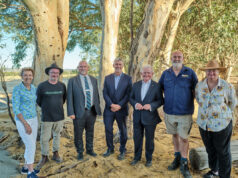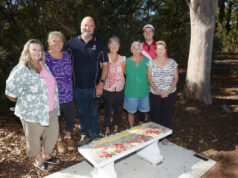
Major industrial developments in the City of Canning may be required to install public art at their premises following a council vote this week.
At its July 18 meeting the council decided on a proposal to amend a current policy that would require industrial sites to fund the installation of works of art on their land.
At present Canning requires multiple dwellings, mixed use and commercial development sites to install public art, but not industrial sites.
If passed industrial sites valued over $7 million will be required to install public art on their premises.
These works will be required to be valued at one per cent of the total estate value, up to a maximum of $250,000.
Currently multiple dwellings, mixed-use or non-residential development projects valued over $4 million are required to install public art on their premises.
The city investigated its industrial developments and found about a quarter of those completed in the past two years in Canning were valued at $4 million or more.
The recommendation to the council was to adopt the policy revision and also for a review on the one-per-cent contribution and the city’s governance of the issue to be completed by March 2018.
The recommendation was made to council by the city’s chief executive Arthur Kyron and if passed the policy would be in line with several cities in Perth.
Currently Victoria Park, Belmont, Vincent and Fremantle require buildings in certain precincts to supply public art.
In these cities the property value threshold for multiple-house estates, mixed-use or non-residential buildings to supply public art ranges from $1 million to $5 million.
In Canning the current trigger is $4 million.
The motion to investigate the proposal was originally put forward by councillor Pauline Tarrant at the May 2017 meeting and passed unanimously.
Speaking before Tuesday’s meeting Ms Tarrant said the city had to make its industrial areas attractive to keep industries from moving elsewhere.
“Businesses are not happy with your average concrete jungle as an industrial area,” she said.
“They’re looking for something more aesthetically pleasing to provide an inspirational environment,” she said.
“Welshpool and Canning Vale at the moment are reasonably well thought of areas but you can’t just rest on your laurels.
“It’s something we need to keep looking at to improve these areas so we keep businesses and employment in Canning.”
Ms Tarrant said the city had a high percentage of residents who worked in its boundaries and a loss of industries would have a direct impact on residents.
The council voted Tuesday night.













